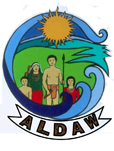Philippines: Initial victory for NGOs and Indigenous people in Palawan
04.08.10
As many of you will know Plant Talk has been actively supporting a campaign in Palawan Province, Philippines to prevent mining in protected areas of rich cultural and biological diversity. Yesterday we received some good news from the team in Palawan led by the Ancestral Land Domain Watch (ALDAW) network.
 Twenty members of the Palawan Council for Sustainable Development (PCSD) met at the end of July to decide the future of planned mining operations in well-preserved forest and their findings, calling for a delayed multi-partite investigation of the issues.
Twenty members of the Palawan Council for Sustainable Development (PCSD) met at the end of July to decide the future of planned mining operations in well-preserved forest and their findings, calling for a delayed multi-partite investigation of the issues.
The PCSD were presented photographic geo-tagged evidence by ALDAW representatives using data collected on two separate research missions - in collaboration with the Centre for Biocultural Diversity (CBCD) of the University of Kent (UK) - and the result was an incredibly strong argument against the mining process.
Geo-tagging is the process of associating photos with specific geographic locations using GPS coordinates. GPS coordinates were obtained through the use of a prdevice connected to the camera’s hot shoe during the mission’s reconnaissance in the hinterlands of Ipilan and Maasin (Brooke’s Point Municipality). The obtained GPS coordinates were later overlaid on PCSD maps to show the overlapping between core zones and MAC mining activities.
The results were conclusive:
1) over 95% of test pits and drilling holes in the MacroAsia Coropration (MAC) Mineral Production Sharing Agreement (MPSA) area are located in “core zones” and biodiversity rich forest
2) Isolated Indigenous communities are living in the MPSA area of MAC and have never been consulted about MAC operations
3) The 91ha for which Strategic Environmental Plan (SEP) clearance is being sought by MAC (out of a total MPSA area of more than 1,300 ha) overlap partially with “core zones” and entirely with well-conserved and residual forest. Even more surprisingly, the mission found no evidence of test pits and drilling holes in the recommended 91ha area.
This evidence was crucial. “This area includes sacred places where our Palawan indigenous communities carry out their own rituals. Moreover, portions of the Ipilan river and other tributaries which provide potable and irrigation waters to the lowland farmers are also found inside the area,” explained ALDAW Chairman Artiso Mandawa.
“This is just an initial victory for the indigenous peoples and our NGO supporters,” said Mandawa at the end of the meeting. “It proves that illicit affairs are not unstoppable, when the evidence brought forward is there to light up every dark corner and to expose all bad practices of mining companies and their political allies.”
Turn the page to read more from the lively debate >>
Related links:
Philippines: Crucial week for the people and forests of Palawan
27.07.10
Plant Talk has been covering the mining threats to Palawan, Philippines for a number of months. As the endgame approaches the Ancestral Land Domain Watch (ALDAW) call for a last minute protest to stop the mining.
Philippines: Crucial days ahead for UNESCO Reserve
22.06.10
 Indigenous people in Palawan, Philippines received shocking news at the start of June that the application of three new Philippine mining firms has been approved into one Financial or Technical Assistance Agreement (FTEE) in a UNESCO Man and Biosphere Reserve.
Indigenous people in Palawan, Philippines received shocking news at the start of June that the application of three new Philippine mining firms has been approved into one Financial or Technical Assistance Agreement (FTEE) in a UNESCO Man and Biosphere Reserve.
Philippines: Update on Palawan campaign
09.03.10
 In February Plant Talk published an article about the mining threats to the landscape, people and plants of Palawan in the Philippines. Yesterday I received an impassioned plea from Aldaw (Ancestral Land/Domain Watch) to bring a petition to the attention of the public.
In February Plant Talk published an article about the mining threats to the landscape, people and plants of Palawan in the Philippines. Yesterday I received an impassioned plea from Aldaw (Ancestral Land/Domain Watch) to bring a petition to the attention of the public.
Philippines: Geo-tagging reveals mining threats on the “Last frontier”
01.02.10
 Plant Talk invited Dario Novellino from the Centre for Biocultural Diversity (CBCD), UK to speak out against the logging and mining in protected areas that is destroying the forests of Palawan.
Plant Talk invited Dario Novellino from the Centre for Biocultural Diversity (CBCD), UK to speak out against the logging and mining in protected areas that is destroying the forests of Palawan.